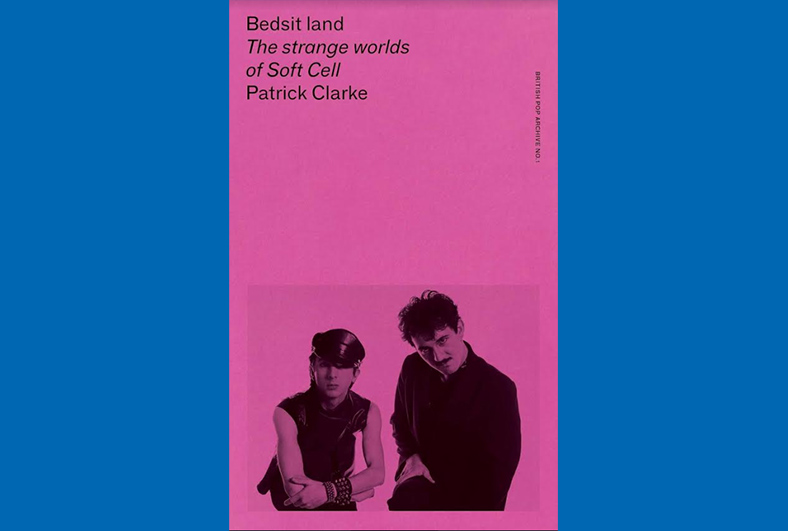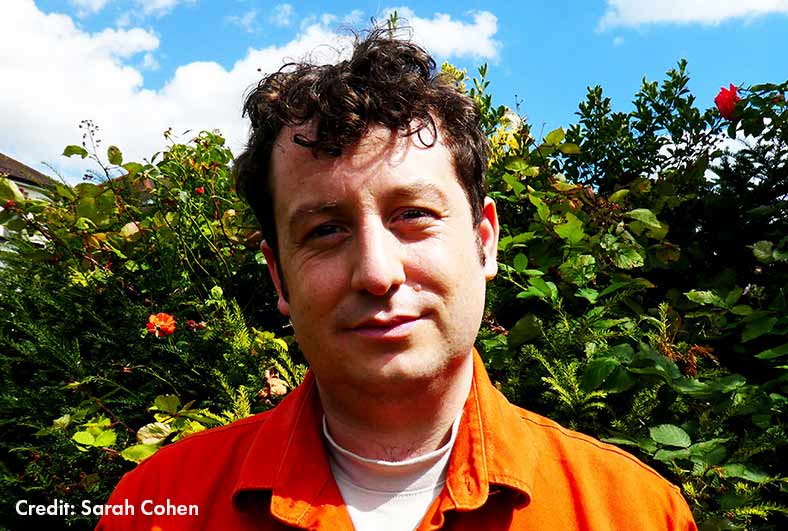‘Live music is still in a pretty perilous place’: Interview with deputy editor of The Quietus, Patrick Clarke

Music festival season in the UK has now come and gone, but in the life of a music journalist it never stops, with more gigs to attend, albums to review, and bands to interview.
Patrick Clarke has been in the music journalism industry for nearly a decade now, and has spent the last seven years working for The Quietus, where he is now deputy editor. He has also written as a freelancer for the likes of NME, Rolling Stone, and The Guardian, and recently published his first book about the 1980s band Soft Cell. We caught up with him to discuss the book, what it’s like to interview your favourite band, the importance of social media, and the lasting impact that the pandemic has had on the music industry.

Who has been your favourite musician to interview in your career so far, and why?
Different interviews are rewarding for different reasons. Sometimes things will click and you’ll just have a really insightful conversation. My personal highlight is the Manic Street Preachers. When I was a teenager, they were my favorite band and I was really obsessed with them. I remember begging to do the interview with them, when I was an intern at The Quietus, and being so terrified and so nervous that I basically had a panic attack in the hotel.
I wasn’t very professional as I had a record in my tote bag that I wanted them to sign. However, It couldn’t have gone better. They’re really sound, but also offered a really good interview that I think held up and was solid. It wasn’t just fan service. It was meeting a hero, and it being everything that I wished for and more. On a personal level, that was probably the happiest and most memorable interview that I’ve ever done.
You’ve worked in the industry for nearly a decade, how has it changed during that time and what impact has that had on your journalism?
I think the industry is still reeling from the adaptations that we had to make after the pandemic. The Quietus weathered the storm pretty well but live music is still in a pretty perilous place in terms of the money, the revenue, and just everyone’s energy. Personally, it made me take things more seriously. I remember during lockdown that I worked quite incessantly to stave off the existential dread, and I found myself going deeper and improving as a writer because I was taking it more seriously. I wasn’t treating this as an excuse to go out to gigs or to have fun. I realised what it was I really loved about music, when all the freebies and everything is stripped away. On that front, it was a good thing, but I think the music industry is still in recovery from it.
How important are other platforms (TikTok, Instagram, etc.) for sharing content and finding new audiences?
I think having a personal brand is important. I’m not very good at that. If I was better at pushing myself on social media then I think I’d probably have more success. But I think we’re moving towards a space in which writers who have a strong personal brand and have a good social media profile can gather readerships of their own without having to rely on a larger publication’s readership to do so.
There are journalists with Substacks that are pulling in a very dedicated, loyal audience, and with paid subscriptions. This seems to be where things are headed. Individual publications are losing their prestige a little bit to individual writers at the moment. So I think it’s important if you want to break in, you need to be the kind of person who’s savvy with that kind of thing.
Can you tell us about your ‘Bedsit Land: The Strange World of Soft Cell’ in a couple of sentences?
It’s ostensibly a biography of Soft Cell, but I was keen to broaden the scope and to make it more of a psychogeography. It doesn’t just tell their story, it tells the story of the environments that shaped them.
How did you come to write the book?
In 2021, as part of my staff job at The Quietus, I did a fairly straightforward kind of oral history of Soft Cell’s first album to mark its 40th anniversary. It was interviews with the band and also their collaborators and other people who were involved. Usually when I’m doing something for the Quietus, because we’re quite a small, under-resourced publication, I have to dive into it, do as good of a job as I can, as quickly as I can, and then move on to the next thing.
This one took over in a way that other pieces don’t. I found that there was a really interesting story to be told about this, ostensibly a pop band, who actually were drawing on incredibly radical things. I don’t think that had ever really been acknowledged to the right extent.
Adele Stripe, who is a journalist and wrote a book about the Fat White Family, told me that the Manchester University Press were launching a new series called The British pop archive. They were looking for pitches of book length examinations of pop groups that delved beyond the surface and told a story that hadn’t been told before. She said about expanding the Soft Cell piece and pitching it to them, which I did, and after about a year of back and forth, writing a sample chapter and a proposal – it was commissioned to be a full book.
What’s the difference in the writing process between your usual journalism and writing a biography like this?
It was very challenging, in a good way. Sticking on one subject for that long is alien to me because I’m usually moving from one thing to the next, which is one of the things I really enjoy about my job; the variety. Having to immerse myself into that world for so long was pretty challenging.
It was difficult figuring out where to draw the lines. Once you start following the rabbit holes, you realise that you could go on and on, like the whole book could have just been the first chapter if I wanted to go deep enough. I had never written a book before so I was learning as I went along.
I made the decision early on to broaden out the scope. I started interviewing historians of the British seaside for context, focusing on Blackpool and Southport as weird seaside towns. I spoke to circus ringmasters and people who had an encyclopedic knowledge of beach huts and stuff like that. It was a completely different process to writing an article. Incredibly challenging, but incredibly joyous.
Are you working on another book or have any other projects underway?
As soon as I finished the book, as exhausting as it was, I missed having this huge project because I wrote it while balancing my day job as well. Last year was incredibly full on and stressful, but it’s like the way people talk about childbirth. It was this physically taxing, traumatic thing, but also really rewarding, and you want to have another child. I’ve never had a kid, so I don’t know if that’s a good analogy, but I instantly missed it. So I’m already in the stages of pitching another book that will be very different, much more contemporary.
‘Bedsit Land: The Strange World of Soft Cell’, can be purchased by clicking here. Or if you want to keep up with Patrick’s work at The Quietus then you can follow him on X (formerly Twitter).
And if you’re a journalist with a book about to come out, or you want to chat about the industry in general, then you can email us via news@responsesource.com.